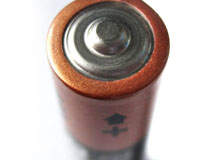
Alex Hawkes: What advantages does implementing fuel cells in military field applications have over traditional battery power?
Chris D’Couto: Fuel cells offer several fundamental values to the military sector over batteries. The research and development centre for the US Army estimates that a typical US soldier carries approximately 30lb in batteries for military applications during a three-day field operation. A soldier would only need to carry an equivalent of 8lb in fuel cells for the same operation.
Secondly, the technology offers soldiers instant recharge capability. When a fuel cell runs out of energy, only the cartridge needs to be swapped to resume power. A battery, on the other hand, will either need to be recharged or completely replaced – meaning the soldier will have to carry spares.
Fuel cells are also lighter and last longer than batteries. A fuel cell, for example, that is equal in weight to a battery will have a far longer lifespan or if the fuel cell has an equal lifespan to that of a battery it will be considerably lighter.
AH: The disposability of batteries is often cited as an issue for troops during field operations. In what ways do fuel cells overcome this problem?
See Also:
CDC: Fuel cells are a very green product in comparison to primary (non-rechargeable) or rechargeable batteries. A fuel cell cartridge that lasts eight hours is roughly the same size as a standard printer cartridge and is made of moulded plastic with electrolytes and water.
How well do you really know your competitors?
Access the most comprehensive Company Profiles on the market, powered by GlobalData. Save hours of research. Gain competitive edge.

Thank you!
Your download email will arrive shortly
Not ready to buy yet? Download a free sample
We are confident about the unique quality of our Company Profiles. However, we want you to make the most beneficial decision for your business, so we offer a free sample that you can download by submitting the below form
By GlobalDataIn a battlefield – particularly in unfriendly territories, this is a preferable object to discard than batteries, which are constituted of heavy metals and sulphur.
Currently the majority of armed forces rely on primary batteries during field operations and there is evidence to suggest that soldiers leave a breadcrumb trail of discarded batteries which can potentially give away their positions. Fuel cells can again address this issue.
AH: How has Neah Power’s new silicon-based fuel cell added a new dimension to the fuel cell market particularly in regards to use in military applications?
CDC: Proton exchange membrane (PEM) fuel cells have been around for over 30 years and were even used in the early missions to outer space. Neah Power, however, was founded in 1999 by two students from the University of Washington who began developing a silicon-based electrode fuel cell. The technology was patented between 2003 and 2005 and by 2009 we had received two grants from the US Navy that we used to construct initial prototypes.
There are fuel cells currently on the market that typically fail after 200 or 300 hours of operations, but our silicon-based fuel cells are able to run in excess of 2,000 hours and only record a 5% drop in power.
The technology aims to have a higher power density, more cost-effective manufacturing and a lower-cost-based model than rival fuel cells. It also has air and non-air operational capabilities which make it uniquely suited for use in military unmanned underwater vehicles.
AH: As a next-generation technology, will the next ten years therefore be critical for the adoption of silicon-based fuel cells in the military sector?
CDC: I think we are certainly going to see smaller military applications move towards fuel cells – a move strongly driven by the eco-friendly nature of the technology.
Operations in Afghanistan and Iraq have once again highlighted the need to reduce the weight of equipment that troops carry during field missions. I believe fuel cells are the most likely candidate to effectively address this issue.
There has already been a strong interest in our new technology and recently Neah Power signed a collaboration agreement with a large US defence equipment supplier. This will see our fuel cells used in a variety of equipment including soldier applications, aerial applications and unmanned water vehicles.



